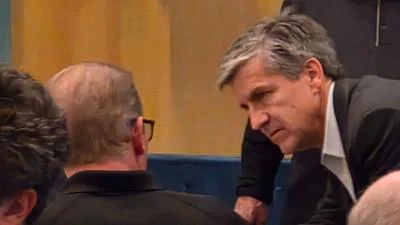Evanston-Skokie Community Consolidated School District 65 recently issued the following announcement.
This spring District 65 rolled out a protocol for responding to racism, discriminatory language, and hateful acts in our schools. When students have these experiences a thoughtful, meaningful, and timely response is the collective responsibility of our educators, administrators, and support staff. All staff will intervene whenever situations have the potential to cause physical or emotional harm. We are committed to being decisive both in prevention and response in ways that do not mitigate the impact of the action on any targeted student. District 65 staff have reviewed and discussed the protocol during professional a learning session this spring.
FOUNDATIONAL BELIEFS: WHY A PROTOCOL IS NEEDED
Successful all-school work also includes identifying certain non-negotiables for teachers, administrators, students, and families. These beliefs and practices must be established as part of our schools’ guiding principles before incidents take place; they serve as a foundation for developing responses and plans of actions after any incident of racism, discriminatory language, or hateful acts. These non-negotiables include, but are not limited to:
- A person’s race is never used as a put-down or insult
- A person’s identity is never used as a way to hurt or exclude someone
- Discriminatory and hateful language, including racial slurs, are never acceptable
- Knowing what a hate crime is and how to report it:
- A hate crime is when someone commits a crime for a biased reason. This includes: race, religion, national origin, LGBTQ status, gender, gender identity, physical or mental disability.
- Hate crimes can include: Assault, bullying, cyberstalking, harassment (including threatening by telephone, by email, and via social media), trespass, disorderly conduct, mob action, damage to property, and/or graffiti/vandalism
Following a racial incident at Willard school, Jasmine Sebaggala had a call to action for the school community to do something more in addressing issues of racism in a more a structured, intentional, and responsive way. Based on her advocacy and support of her fellow teachers and administrators Willard School’s school climate team created the Call to Action - Protocol for Responding to Hateful Language and Actions at School, with contributions by Meghan Rice, Chris Skoglund, Emily Castillo-Oh, Adrian Gancarczyk, Lara Galicia, Brittany Noble, Khloe Battle, Alejandra Neri, Frances Blair-Collins, Jerry Succes, and Jerry Michel. The Willard team shared this version with district office to use as a base for what is now called D65 Call to Action - Responding to Racism, Discriminatory Language, and Hateful Acts.
This document was brought to principals and assistant principals to incorporate district-wide building-level perspectives and also includes valuable feedback from members of the District Equity Leadership Team, members of the African American, Black, and Caribbean (ABC) parent group, Black Parents of King Arts group, Bilingual Parent Advisory Committee (BPAC), Asociaión de Familias Hispanas District 65 (AFHD65), D65 parents whose children have had documented experiences with racism, and school and district leadership.
PROTOCOL OUTLINE
The protocol is based on A Guide for Administrators, Counselors, and Teachers: Responding to Hate and Bias at School (Teaching Tolerance). Steps included in this protocol include:
- Initiating fact-finding to better understand the situation
- Electronic documentation of the incident, including investigation notes and statements from affected students and witnesses
- Clear and timely communication to necessary stakeholders, including families, school staff, and district administration
- Engaging school improvement and climate teams in determining the appropriate interventions; establish networks that center on diverse voices and perspectives
- Involving classroom teachers in support for both targeted and offending students
- Professional resources and consultation (provided by the district) for any teachers or administrators needing additional guidance to respond appropriately and with urgency
- Follow-up activities or responses for classrooms/grade levels/whole school, as necessary, depending on the scope of the event
- Guidance on restorative practices that focus consequences on deeper, more authentic learning and understanding of racism, hateful language, discriminatory acts, and bias
DISCUSSING AND ADVANCING OUR WORK: RACE, SEXUAL ORIENTATION, GENDER EXPRESSION IDENTITY, AND THE RACIAL EQUITY IMPACT ASSESSMENT
As we work to promote an anti-racist and welcoming culture for all students, the District 65 Equity Glossary was developed to establish clear, agreed upon definitions for critical concepts and terms. This document is available to all members of our community as a way to maintain and support shared common language and understanding
Original source can be found here.





 Alerts Sign-up
Alerts Sign-up